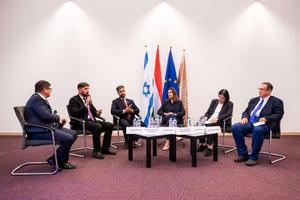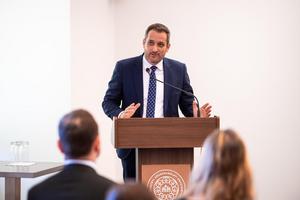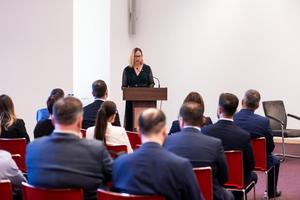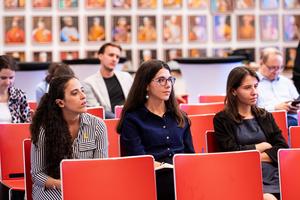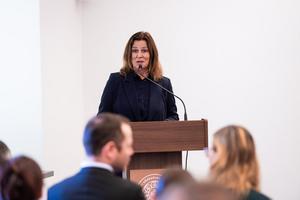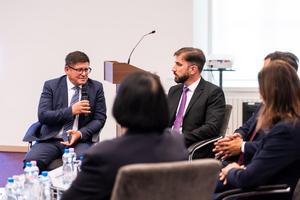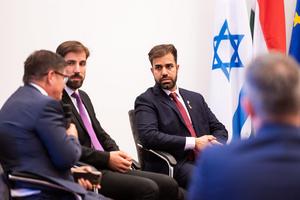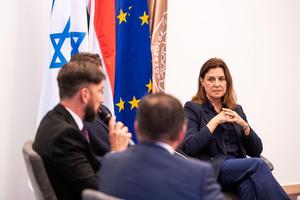Under this title, the International Directorate-General organized a professional forum on September 18 in the Zrínyi Hall.
In his opening speech, Bernát Török, Director-General of the Eötvös József Research Center at LUPS, emphasized that history is not predetermined; it is shaped by people, and ultimately it depends on us whether we move forward together—or backward.
“Hungary’s foreign policy seeks to build bridges, to explore opportunities for cooperation, and to maintain balanced relations. For us, the Middle East is not distant: it is of central importance for both our security and prosperity. Migration and trade alike connect us,” he said, adding that the friendship between Hungary and Israel is not only of strategic importance, but also rooted in shared values and mutual respect.
Following this, Maya Kadosh, Israel’s Ambassador to Hungary, welcomed the guests. She recalled that through the Abraham Accords, Israel had built bridges among Arab states, fostering cooperation in security, trade, and technology.
“In these challenging times, Israel knows who its true friends are: Hungary is one of Israel’s closest and most important partners. It has defended Israel’s right to self-defense and taken a strong stand against antisemitism,” she noted, adding that this partnership extends beyond politics. Events such as today’s forum, she said, are signs of shared commitment.
Aliza Bin-Noun, Israel’s Ambassador to France and Monaco, who had previously served as Israel’s Ambassador to Hungary between 2007 and 2011, also addressed the forum. Born in Transylvania, she greeted participants in Hungarian before delivering her keynote lecture, which provided an overview of the situation in the Middle East. She stressed that the Hamas attack two years ago in October fundamentally changed Israelis’ perception of the region and reshaped the strategic order of the Middle East. “Such an attack must never happen again,” she said, adding that Israel has taken tangible and decisive measures over the past two years to ensure this. The ambassador also highlighted that the international community—especially countries in the East—often uses the situation in Gaza as a pretext to halt cooperation with Israel. “It is important to understand and state clearly that the relationships between Israel and many surrounding or regionally connected states are of strategic importance. These countries have a fundamental strategic interest in cooperating with Israel.”
The program continued with a panel discussion, which, alongside the keynote speakers, featured László Csicsmann, Senior Research Fellow at the Hungarian Institute of International Affairs; Erzsébet N. Rózsa, Professor at the Department of International Relations and Diplomacy, Faculty of Public Governance and International Studies, LUPS; Or Yissachar, Vice President for Research at the Israel Defense and Security Forum (IDSF-Habithonistim); and Oman Sayfo, Research Director at the Migration Research Institute. The debate, which focused on the balance of power in the region, was moderated by Péter Morvay, journalist at Hetek magazine.
A detailed report on the professional forum will be available on ludovika.hu.
Text: Lilla Kovács
Photo: Dénes Szilágyi
